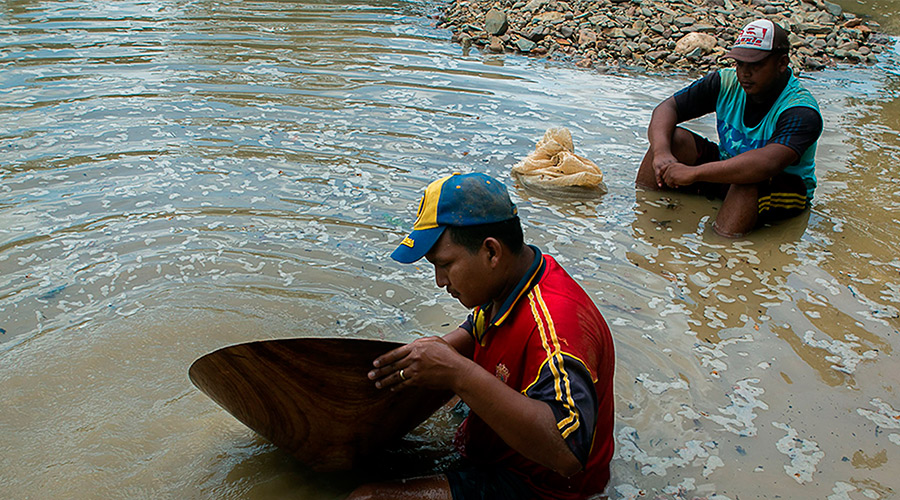NGOs want Venezuela to halt mining concessions, claim violations of Indigenous rights
Three NGOs, the Venezuelan Program for Education and Action in Human Rights-Provea, the Peace Lab, and the Working Group on Indigenous Issues at the Andes University, issued a statement blasting Nicol??s Maduro's government's push to exploit mineral resources on ancestral lands in the Bol?-var, Amazonas, and Delta Amacuro states. They are joining their voices to those of other organizations, such as the Central University of Venezuela, who are asking for a total halt of extractive activities in the area.
The advocacy groups are taking issue at the so-called Mining Arch of the Orinoco River National Development Strategic Zone, which was created by decree on February 24, 2016 and includes an 111,843 Sq.Km concession area for mining gold, diamond, iron, copper, bauxite, coltan, among other resources. The extension is larger than the whole territory of Portugal.
More than 150 companies from 35 countries responded to Maduro's call to invest in the mega project.
But the land that comprises most of the Arch hosts more than 50,000 Indigenous residents from six different tribes. According to the NGOs, they haven't been properly consulted about the impacts that the development will have in their ways of life.
"The Indigenous jurisdiction is still one of the biggest debts [the State has] when it comes to First Nations' rights; militarization of their traditional territories, without consultation, has resulted in violations against their lives, physical integrity, and the right of free movement, as well as unacceptable cultural impacts," the statement reads.
Previously, Amnesty International also published a report saying that Aboriginal people have not received enough information about the mining Arch and that they were excluded from decision-making processes. AI is particularly worried about the environmental impacts of the project and how the destruction it is expected to cause would take away resources First Nations' use to build their houses, feed their families, and practice traditional medicine. This is especially worrisome in a moment when Venezuela faces a dramatic food crisis.
All the NGOs say the State hasn't fulfilled its obligation to run an environmental assessment of the project. Thus, the government doesn't know for sure which would be the consequences of large-scale resource extraction in the area, which is known for its majestic rivers and waterfalls. Even the government-leaning website Aporrea.org published a story supporting this account.


Miners at El Callao in Venezuela (Photo: Elestimulo.com/Fabiola Ferrero).
But the government denies these type of allegations. Last August, the Vice President for Social Development and the Revolution of the Missions, Jorge Arreaza, told the state press agency that his office is running proper hydrographic studies and that 181 Indigenous communities are scheduled for consultation. He said that First Nations' inputs will be included in the official plan for the area.
Nevertheless, the above-mentioned human rights organizations call these consultations "improvised express assemblies," that are not held in Indigenous languages and that last for a very limited amount of time.
Thus, they are calling upon the government to stop approving concessions to both transnational and national companies in the Mining Arch area until strict environmental and cultural assessment reviews are conducted.
They also want the Maduro administration to establish a real consultation process that complies with international standards when it comes to the rights of Indigenous peoples and that responds to the principle of free, previous, informed and in-good-faith consent of a project that might affect their ways of life.